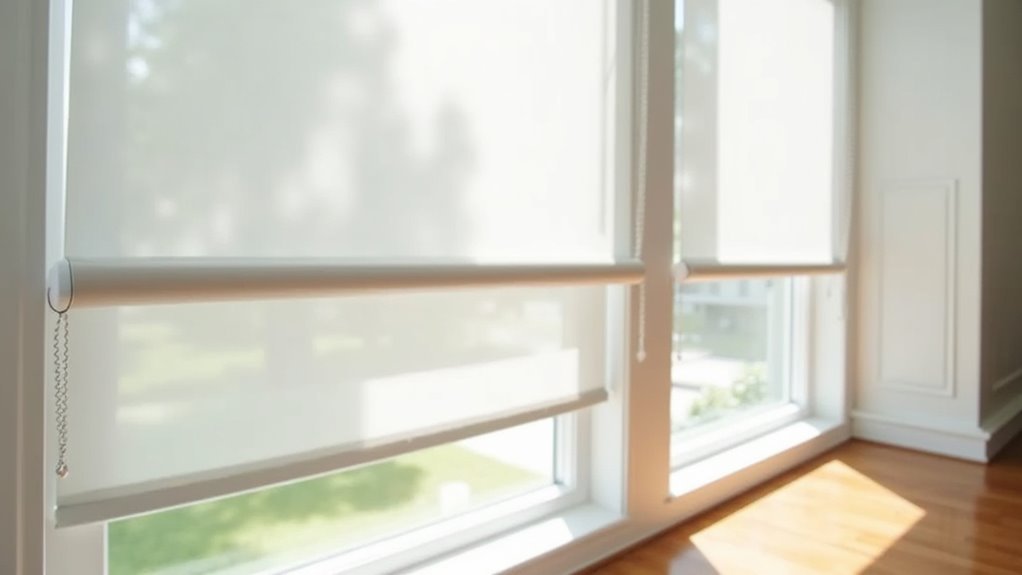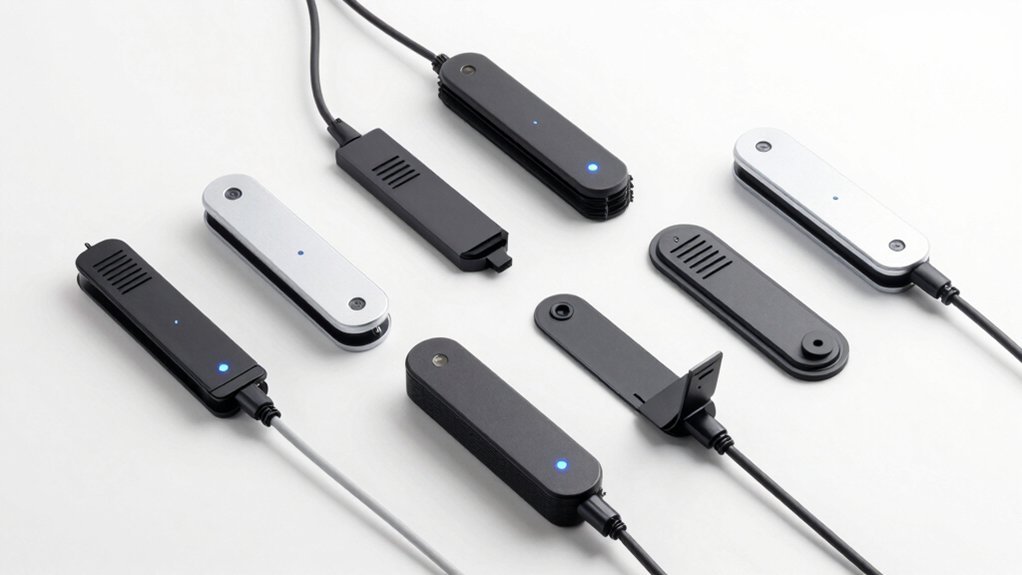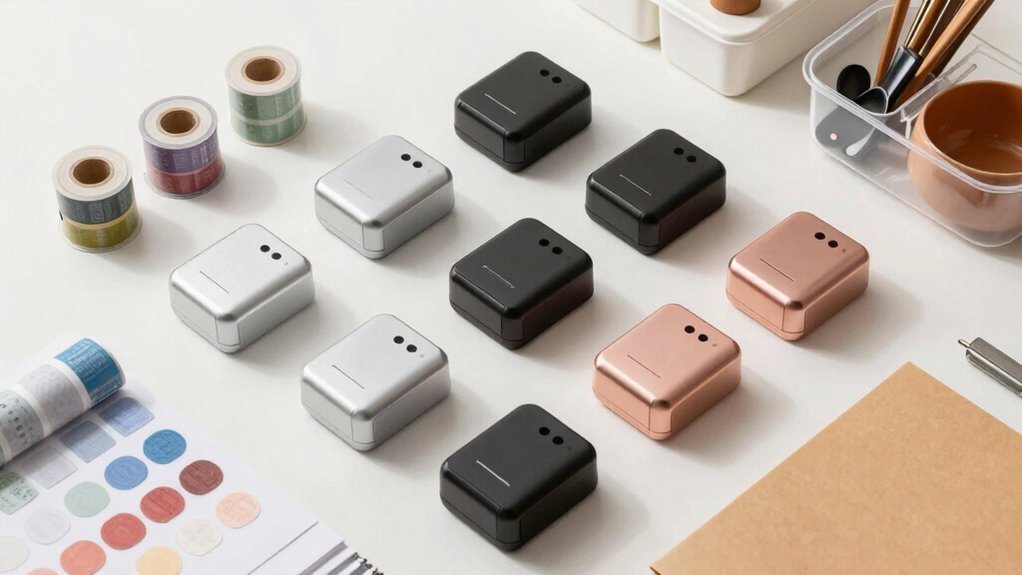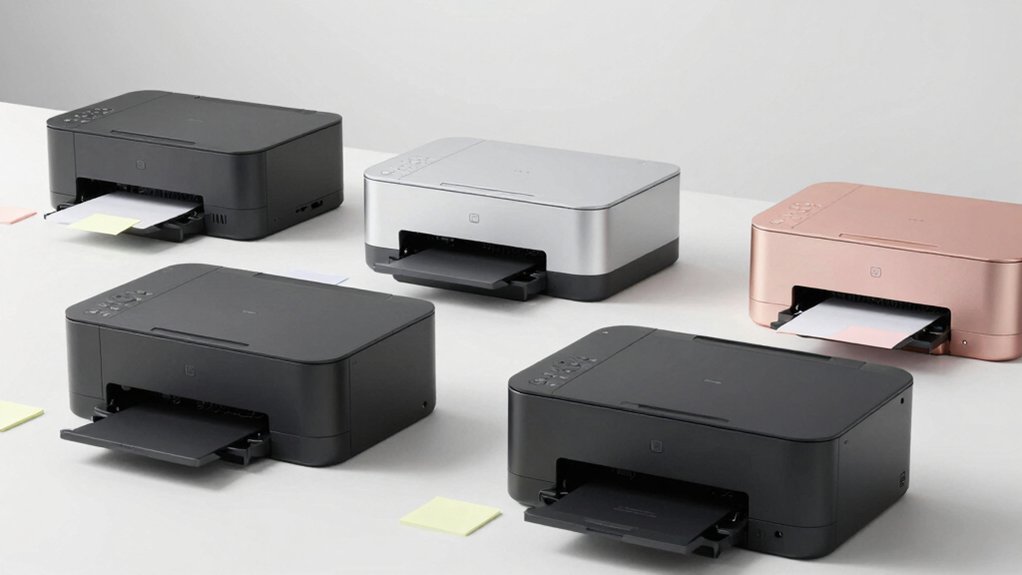You’re probably tired of manually adjusting your blinds throughout the day, missing out on energy savings and ideal lighting. Smart automated blinds with scheduling features can transform how you control natural light in your home, but choosing the right system isn’t straightforward. With options ranging from budget-friendly solutions to premium installations, each offering different smart home integrations and control capabilities, you’ll need to understand what separates basic automation from truly intelligent window treatments.
SmartWings Motorized Light Filtering Roller Shades – Best Overall Value

The SmartWings Motorized Light Filtering Roller Shades deliver exceptional value at $170, combining affordability with premium automated functionality.
These motorized blinds offer an affordable option without sacrificing quality, featuring 15 styles from sheer to blackout to match your light filtering preferences.
Quality meets affordability with 15 versatile styles ranging from sheer to blackout for customized light control.
You’ll need a Matter-compatible hub for setup, but these automated blinds integrate seamlessly with major smart home platforms including Amazon Alexa, Apple Home, Google Home, and Samsung SmartThings.
The Thread wireless connectivity guarantees reliable performance throughout your home.
SmartWings shades excel with their scheduling features, automatically adjusting based on local sunrise and sunset times.
This automation enhances both convenience and energy efficiency, making your daily routine smoother while potentially reducing heating and cooling costs through intelligent light management.
Lutron Serena Smart Wood Blinds – Premium Automated Control
Starting at $700, Lutron Serena Smart Wood Blinds represent the premium tier of automated window treatments, delivering sophisticated louver control that automatically optimizes lighting and minimizes glare throughout your home.
These smart wood blinds require the Lutron Caséta Smart Hub for connectivity and integrate seamlessly with major smart home platforms including Amazon Alexa, Google Home, and Apple HomeKit.
You’ll appreciate the automated control system’s quiet motors and extensive scheduling features that open or close blinds at predetermined times, enhancing both privacy and energy efficiency.
With over 100 customizable louvers in various colors and styles, you can match any décor.
The Natural Light Optimization feature automatically adjusts blinds based on local sunrise and sunset estimates, providing effortless convenience.
OmniaBlinds Eve MotionBlinds – Budget-Friendly Scheduling Solution

While premium automated blinds command high prices, OmniaBlinds Eve MotionBlinds delivers essential scheduling functionality at a fraction of the cost.
Offering customizable roller shades that automatically open and close based on your programmed times and lighting conditions, you’ll find 159 color options to match any décor while enjoying full programmable settings through the intuitive Eve app.
This budget-friendly solution requires a Thread Border Router for smart home integration, enabling seamless compatibility with Apple Home automation.
You can create custom schedules that adjust to sunlight exposure and personal preferences, transforming your automated window treatments into responsive environmental controls.
The rechargeable battery provides up to one year of operation between charges, making these Eve MotionBlinds an exceptionally low-maintenance choice for automated scheduling functionality.
Frequently Asked Questions
What Blinds Does Joanna Gaines Use?
You’ll find Joanna Gaines uses Lutron Serena Smart Roller Shades in her designs. They’re premium quality with over 100 customization options, ultra-quiet motors, and seamless smart home integration that complements her modern farmhouse aesthetic.
Why Are Blinds Being Discontinued?
You’re seeing blinds discontinued because manufacturers are shifting resources toward smart home integration, energy-efficient products, and advanced technologies. Budget retrofitting options have also reduced demand for dedicated automated systems.
What Is the Difference Between Motorized and Automated Shades?
Motorized shades require your manual control via remote or switch, while automated shades use smart technology to adjust themselves based on schedules, sensors, and environmental conditions you’ve programmed.
What Is the Average Cost for Automatic Blinds?
You’ll typically spend $150 to $700 per window for automatic blinds. Budget options start around $170, while premium brands like Lutron begin at $700. For whole-home installation, expect $2,500 to $5,000 total.





Leave a Reply